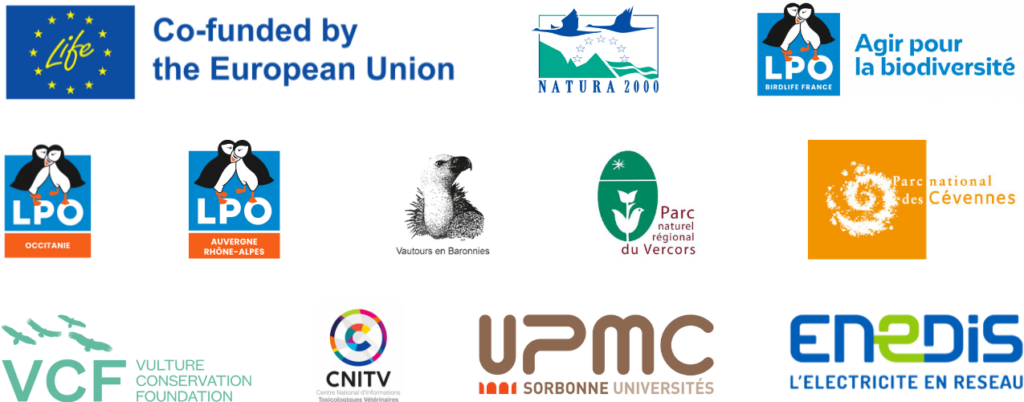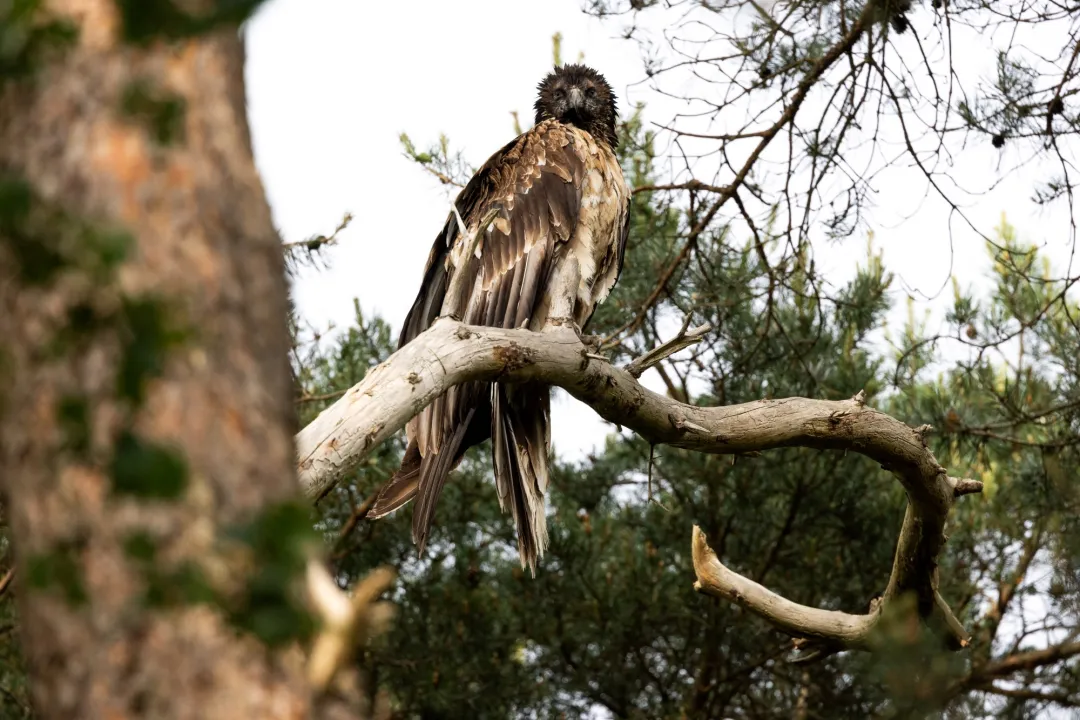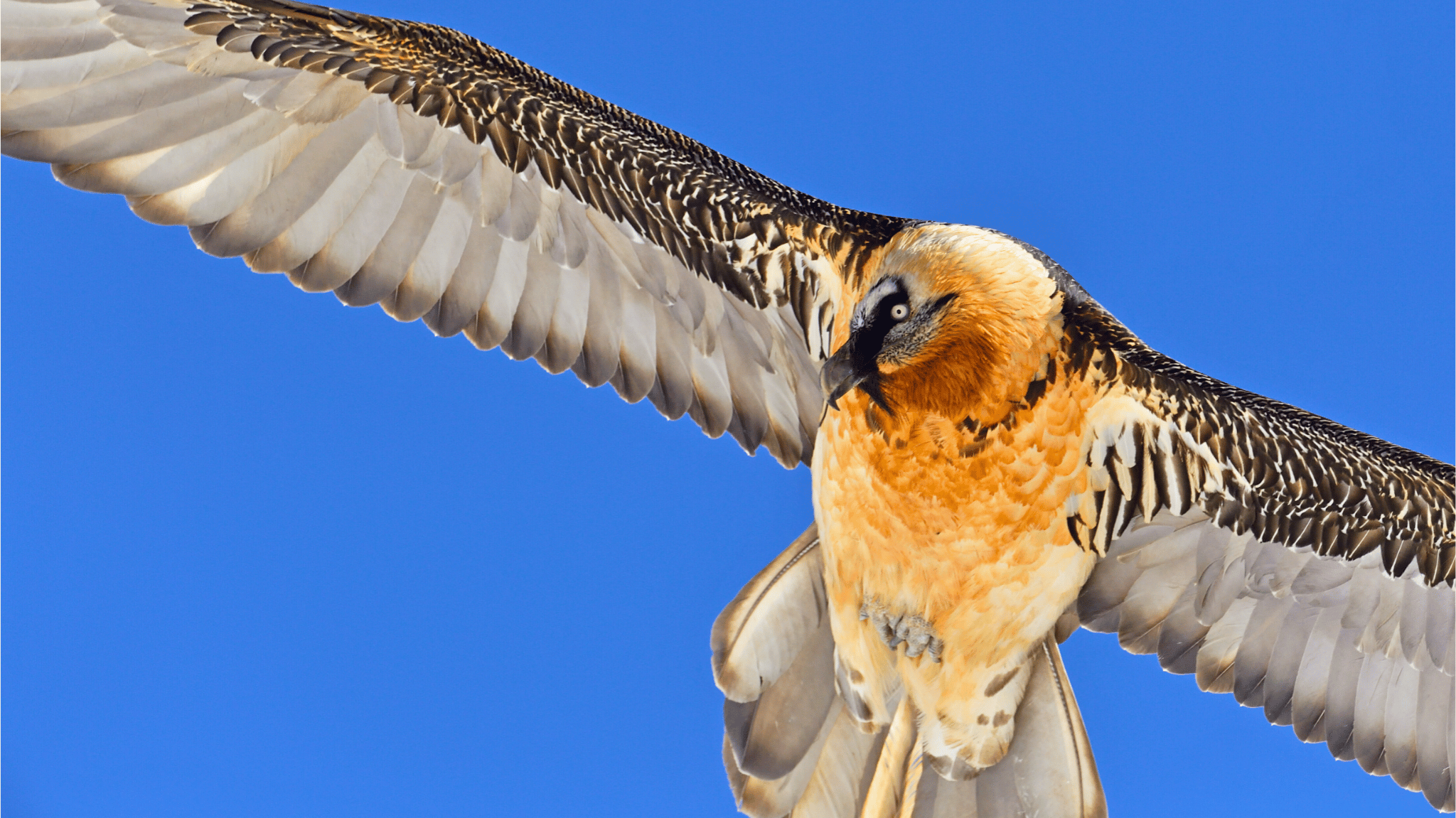Vultures are fearless travellers, crossing borders and enduring long-distance flights in Europe as temperatures rise over spring and summer. In particular, juvenile Bearded Vultures (Gypaetus barbatus) embark on journeys spanning thousands of km, venturing far from their preferred mountainous habitats.
Food availability can compromise their well-being during the journeys, especially when they visit more humanised and populated regions. Additionally, human infrastructures designed for energy and transportation pose serious threats to the safety of vultures, sometimes resulting in fatal consequences. After the recent news of Bearded Vultures Mojo and Roc, two captive-bred Bearded Vultures released in France that had a tragic ending in the Netherlands, we have good news to share today, about “Rei del Causse”, a French captive-bred Bearded Vulture that was recently rescued in Germany.
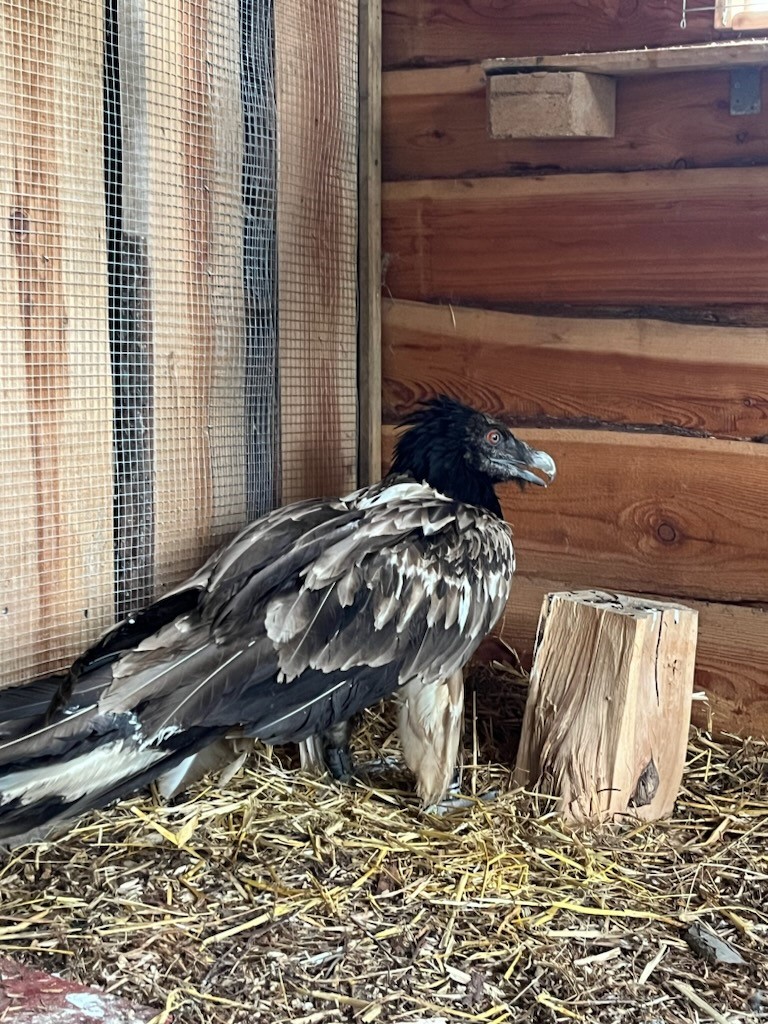

Bearded Vultures, fearless travellers facing many threats
Bearded Vultures are long-lived species. Before reaching sexual maturity, which usually happens by the age of 7-10 years, they tend to disperse and visit regions far from the area where they fledged. Thanks to the GPS transmitters fitted in captive-bred Bearded Vultures released and on wild-hatched juveniles in the nest, we can trace their movements and act swiftly in case suspicious data is received.
There are many records of Bearded Vultures flying thousands of km over large urban areas such as Paris or staying for entire weeks roaming around highly populated European regions in the Netherlands, Belgium or Germany. Some of them have a tragic fate, however. In June this year, Roc, a Bearded Vulture released in the Grands Causses in France within the LIFE GypConnect project, tragically collided with a wind turbine in the Netherlands. Bearded Vulture Mojo also had a fatal ending in the Netherlands in May this year, after colliding with a train.
Bearded Vulture Rei del Causse travels northeast
With these recent sad stories still echoing in their heads, the monitoring team of the LIFE GypAct project (which is ensuring the continuity of the GypConnect) was prepared for the worse when they realised that the Bearded Vulture Rei del Causse was venturing too far in Germany.
Rei del Causse hatched in captivity in Haute-Savoie (France) and was released on 9 May 2022, together with Roc, in the Grands Causses. On 21 June 2023, Rei del Causse started heading north, as Roc had done two weeks before. After spending two days in the Netherlands, the Bearded Vulture reached Münster, in Germany. The monitoring team expected Rei del Causse to return to the Grands Causses; however, the bird took a different route and visited the Rügen peninsula, south of Bohlendorf, instead. He spent the night in an open field, only 500m from a wind turbine!
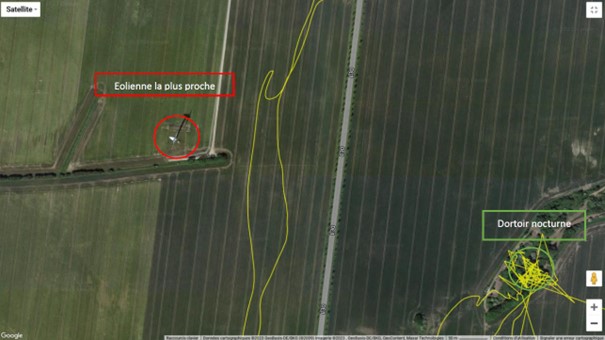

Alive but fragile: Bearded Vulture Rei del Causse rescued in Germany
On 27 June, he moved east and then south, stopping close to the Bergen Rügen. At 6.30 pm, worried about his movements, the monitoring team searched for local support to check the Bearded Vulture’s condition in situ. The bird seemed to be moving around, on the ground, inside of a dense forest. Fifteen minutes after the initial contact with Tierrettung Wildlife Rescue Association, technicians arrived at the site. They spent four hours searching for Rei del Causse in the inaccessible forest. Finally, the bird was found lying on a fallen tree, in a fragile condition. The Bearded Vulture was immediately rescued and transported to the wildlife rehabilitation centre in Lauterbach, Germany. Rei del Causse’s health is now stable, and the bird is recovering.
Partners of the LIFE GypAct are following the health condition of Rei del Causses from close and will be responsible for welcoming the bird to France. Soon, Rei will be transported back to the Grands Causses and re-released in the same place where he fledged. The project aims at restoring the metapopulation of the Alps and the Pyrenees. This season, six Bearded Vultures were released in three different areas in southern France and the East Pyrenees, two of which have already fledged.
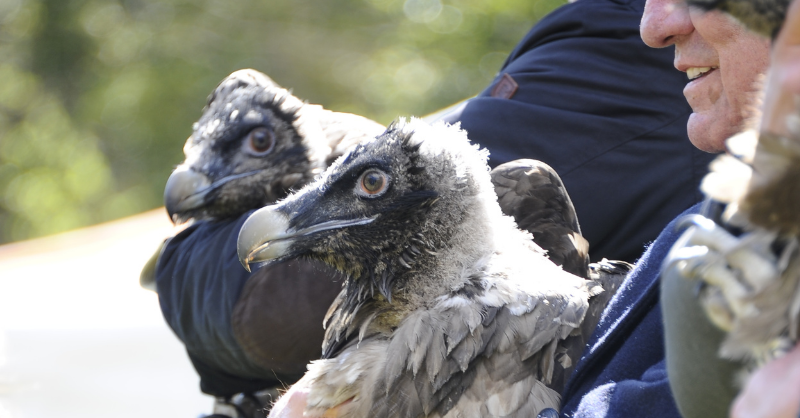
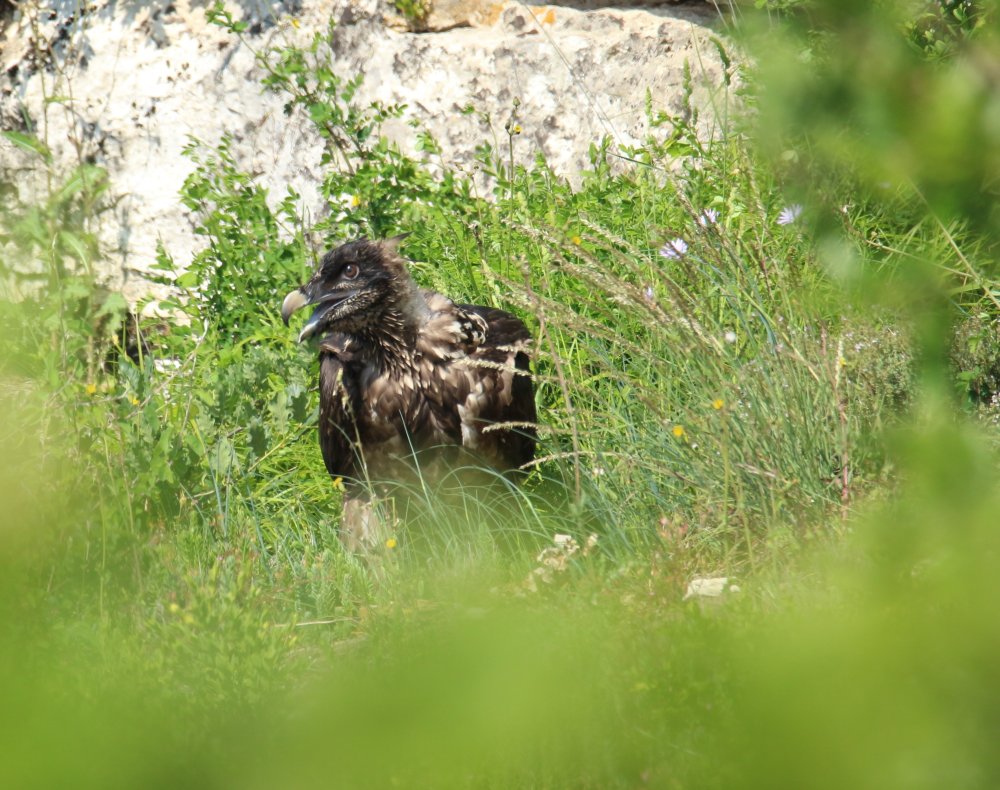
How International collaboration helps to save vultures
The fast mobilisation of the German colleagues was an exceptional example of how good communication and responsiveness can play a decisive role in safeguarding vultures that need rescue. We are very thankful to all who have been involved in rescuing Rei del Causse: to the monitoring team that detected the strange behaviour and contacted Germany and the veterinary team at the rescue centre.
Migratory species, particularly birds, are unaware of political borders. Travelling vast distances across countries, they face many threats, sometimes fatal. Aware of the fundamental role of international cooperation in safeguarding vulture species, we at the Vulture Conservation Foundation (VCF) strive to promote the exchange of best practices and conservation measures across Europe.
By linking scientific research with practical conservation work in the field and through the organisation of capacity-building and training events, we promote open dialogues among governments, academia, captive-breeding centres and zoos, and NGOs. The European Vulture Conference 2023 (EVC), which will take place in Cáceres from 14 to 17 November 2023, is the ultimate gathering for vulture conservationists, researchers and enthusiasts alike. It presents an unparalleled opportunity to collaborate with peers, hear from renowned experts and gain valuable insights into the latest advancements in vulture conservation and research across Europe and beyond.
Learn more about the European Vulture Conference: https://4vultures.org/european-vulture-conference/
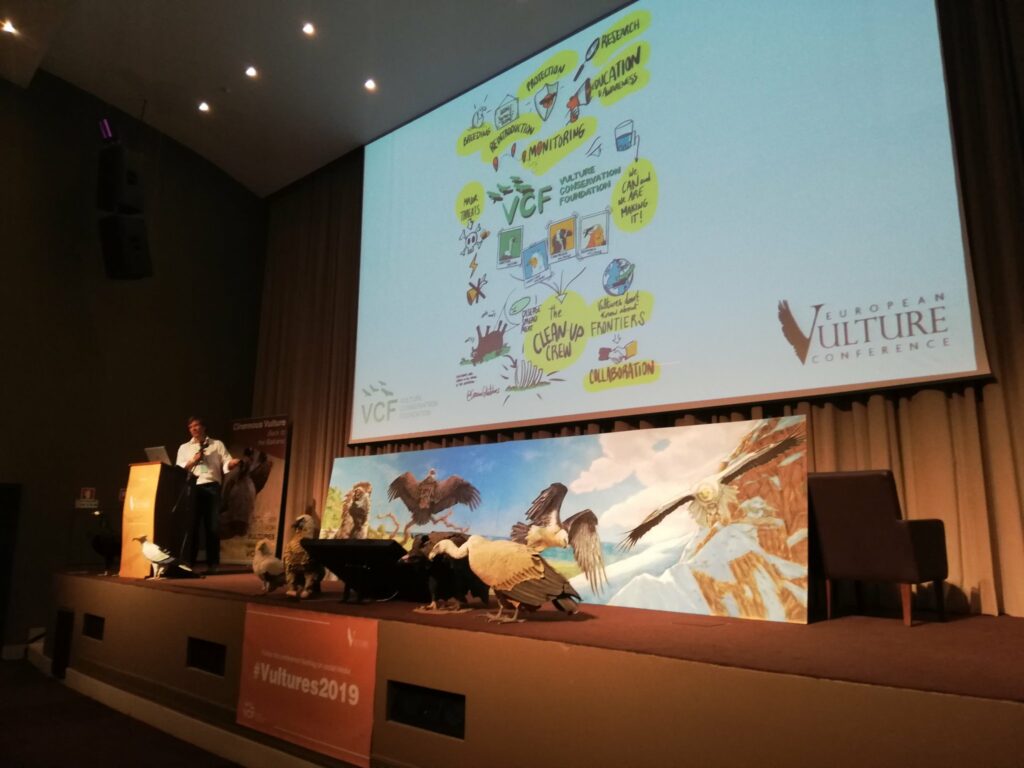

About the LIFE GypAct
The project LIFE GypAct builds on the encouraging results of LIFE GypConnect, implemented between 2015-2022, that contributed to establishing six Bearded Vulture breeding pairs. LIFE Gyp’Act is a 13M€ project, co-funded by the EU’s LIFE programme, that will run until 30 November 2028. Project partners are LPO – Ligue pour la Protection des Oiseaux as coordinator beneficiary, and the Vulture Conservation Foundation, Association Vautours en Baronnies, LPO Auvergne-Rhone-Alpes, LPO Occitanie, Sorbonne Université, ENEDIS, Centre National d’Informations Toxicologiques Vétérinaires, Parc National des Cévennes and Parc Naturel Régional du Vercors as associated beneficiaries.

